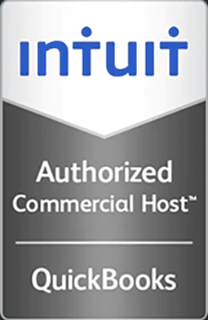Is Bring Your Own Device (BYOD) a Security Concern in Regards to DaaS? (Part 2)
By Eric Wilson
In the second installment of this series we will be exploring the recent BYOD explosion and the changing business communications landscape. We will also offer a basic introduction to Desktop-as-a-Service (DaaS). The final article in the series will delve a bit deeper into various security issues that are addressed with DaaS, To begin with though, let us take a look at what is happening with BYOD, and how some companies have reacted in very polarized ways.
There are several reasons behind the popularity of BYOD, and its exponential growth in the market over the last year. It is appealing to employees for one, because in an increasingly mobile world workers would prefer to use their personal devices that they are intimately familiar with. They also desire access to corporate data from mobile locations. For most employers, the bottom line of not having to provide hardware including upkeep and upgrades is certainly enticing on paper. There is also evidence that people are more productive using hardware and software that they are familiar with. These developments have played a big part in the expansion of BYOD, and the inevitable backlash from some corporations, as well as organizations that have chosen to embrace it.
Two very high-profile and recent developments regarding BYOD policy within IBM and VMware are excellent examples of the polarity involved. IBM has made attempts to curtail several widely-used apps that in essence has made BYOD for their employees not nearly as appealing. While IBM has not banned BYOD, they are in effect making a statement regarding its future within the company. On the other hand we have VMware, which actually implemented a company-wide policy requiring employees to bring their own devices. IBM had very legitimate security concerns with particular applications, but trying to stuff the genie back in the bottle is counter productive. Pandora’s Box has been opened as it were.
Another issue is whether or not an organization has the IT manpower and expertise to handle security protocols for all of these personal devices and the various applications users are employing on them. It is not just the ability to manage the hardware, but can the company afford to take their IT department off of more pressing duties? Bookkeeping companies for example are finding that QuickBooks hosting which is a form of software as a service (SaaS), eliminates the problems of not having, or being able to afford an IT department, and resolves a variety of security concerns.
For small to mid-sized businesses (SMBs) and larger organizations that are struggling with issues that BYOD has brought to the table, there are cloud hosting solutions such as DaaS. What desktop as a service provides, is the ability to take all of the corporate data that resides on every machine that has access to the data center, and virtualize each individual desktop and host it remotely. While each machine, or smartphone, tablet, whatever the hardware, will retain all personal information and software, access to corporate data is through keystrokes and the mouse via the cloud service provider (CSP). This in a sense is putting all the eggs in one basket, but if the basket has the kind of security hardware that even most enterprise organizations cannot afford, cloud hosting DaaS is a very attractive BYOD solution.
In the third part of this series we are going to explore the various security issues involved with BYOD, and how cloud computing and DaaS offer unique solutions to these issues.
If you’re interested in learning how the IV DaaS solution can optimize your remote or hybrid work model, contact us at 866-257-8455 or visit www.InfinitelyVirtual.com/DaaS/.





